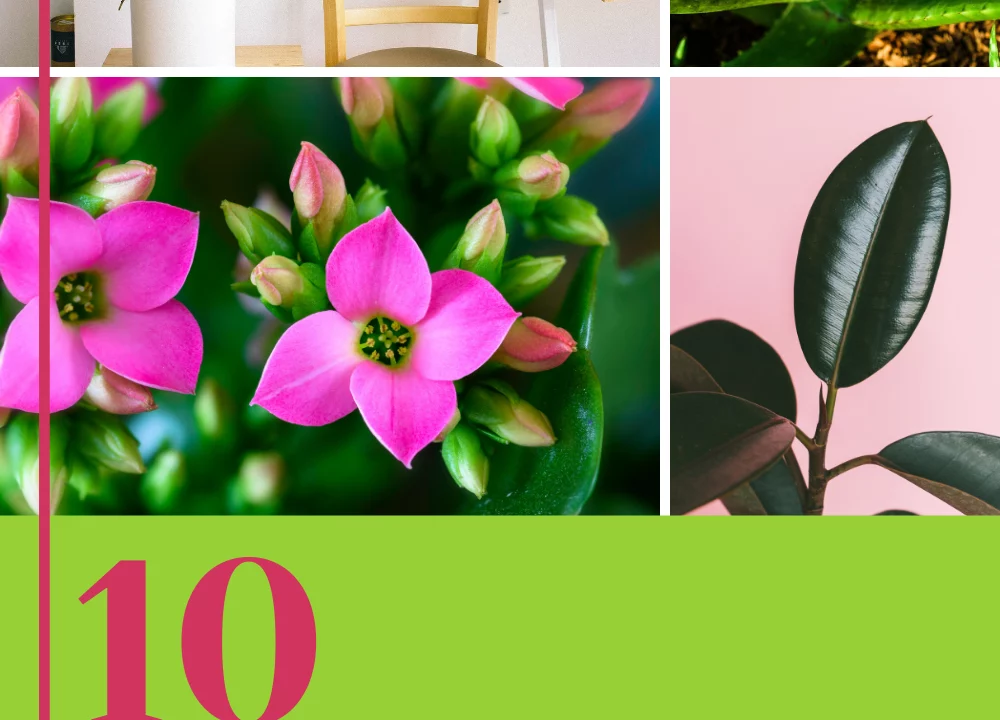Welcome to our guide on the Top 10 Plants Every Home Needs. Whether you are a seasoned plant owner or just beginning to explore the world of greenery, this article is a treasure trove of information. From low-maintenance favorites to those that purify the air, we’ll cover the top 10 things everyone needs to know about indoor plants.
Spider Plant (Chlorophytum comosum)
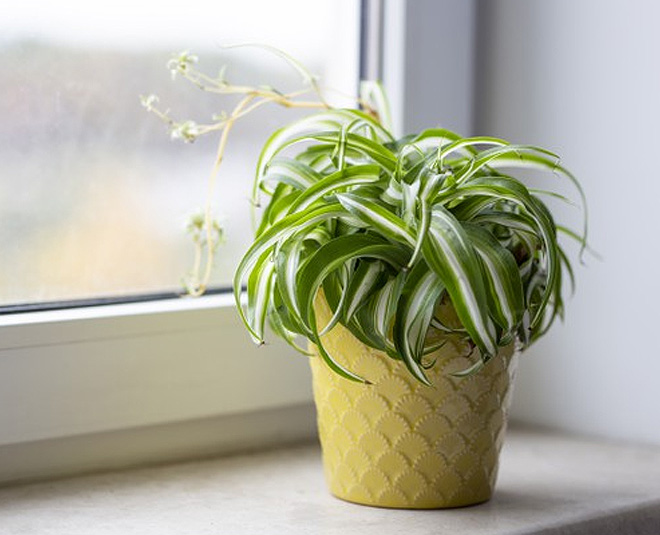
The spider plant is a classic choice for both beginners and experienced plant enthusiasts. Known for its easy care and air-purifying qualities, it’s a perfect start for your indoor garden.
- Light: Prefers bright, indirect light.
- Water: Keep the soil moist but not soggy
Snake Plant (Sansevieria)
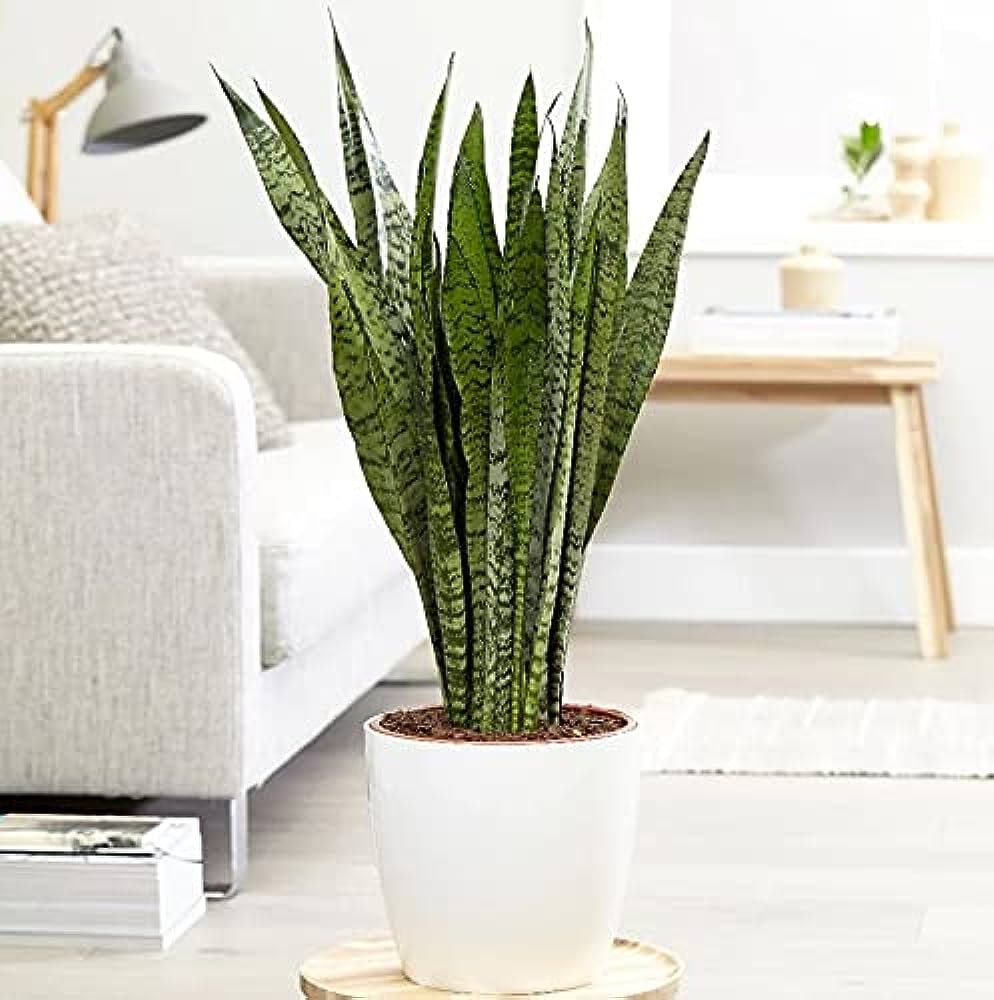
Snake plants are not just stylish; they are among the most resilient plants you can find. Ideal for those who want a low-maintenance green companion.
- Light: Tolerates low light.
- Water: Water sparingly; they prefer dry conditions.
Peace Lily (Spathiphyllum)
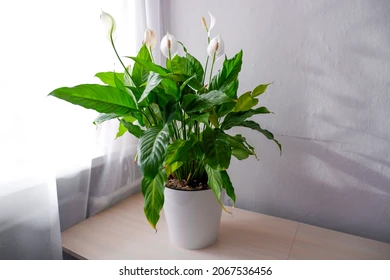
Peace lilies bring a serene beauty to any space and are known for their ability to improve air quality.
- Light: Thrives in shade or partial sunlight.
- Water: Keep the soil consistently moist.
Aloe Vera
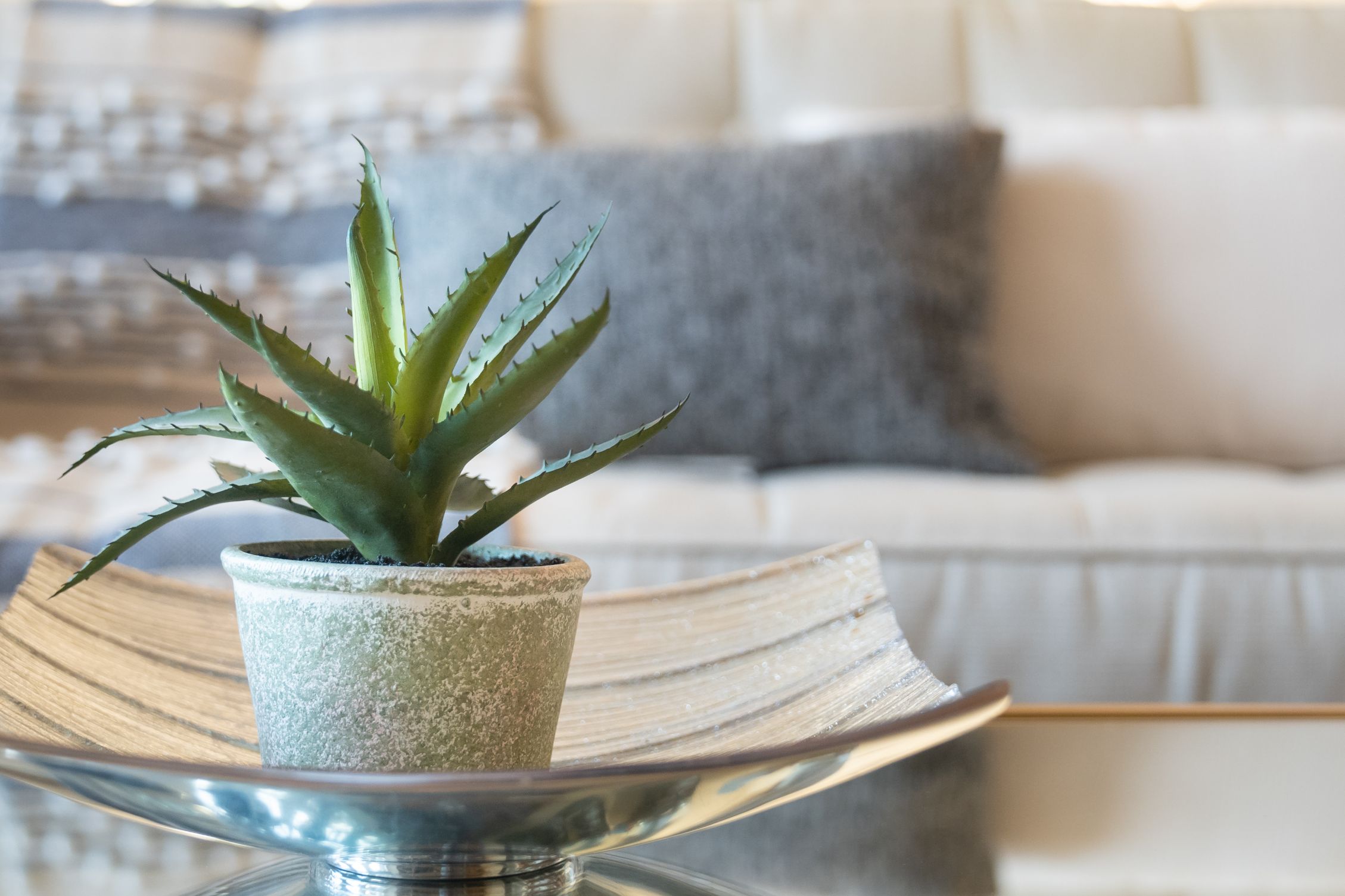
Aloe Vera isn’t just a plant; it’s a household necessity. Known for its healing properties, it’s a must-have for every home.
- Light: Prefers bright, indirect sunlight.
- Water: Water deeply but infrequently.
Rubber Plant (Ficus elastica)
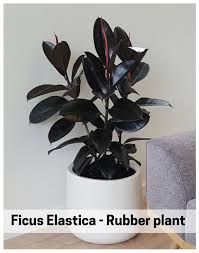
Rubber plants are excellent for adding a touch of elegance to your space. Their large, glossy leaves are incredibly attractive.
- Light: Enjoys bright, indirect light.
- Water: Likes moist soil but not overwatered.
Fiddle Leaf Fig (Ficus lyrata)
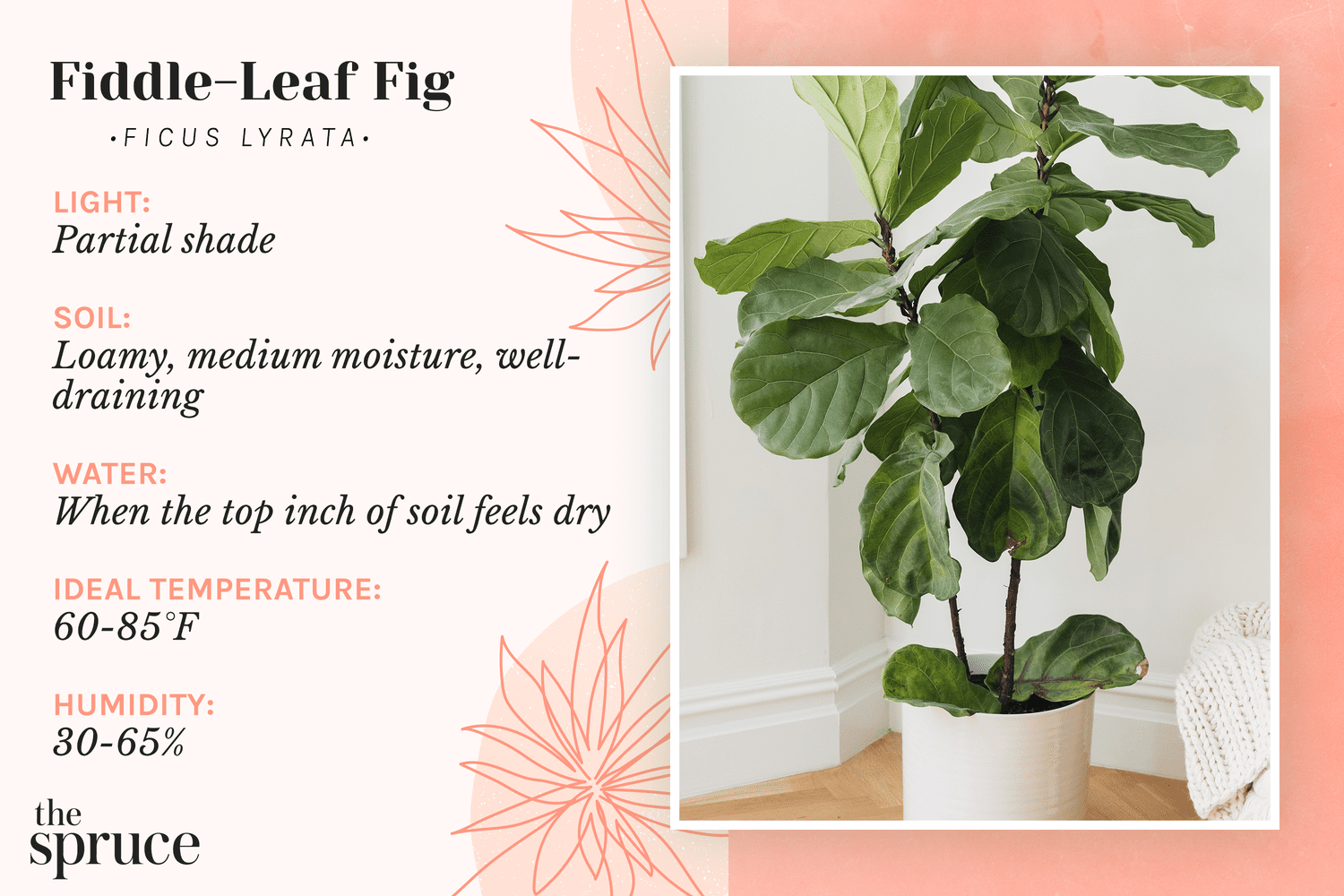
A darling of interior designers, the Fiddle Leaf Fig adds a dramatic touch to any room.
- Light: Loves bright, indirect light.
- Water: Prefers consistent moisture levels.
Boston Fern (Nephrolepis exaltata)
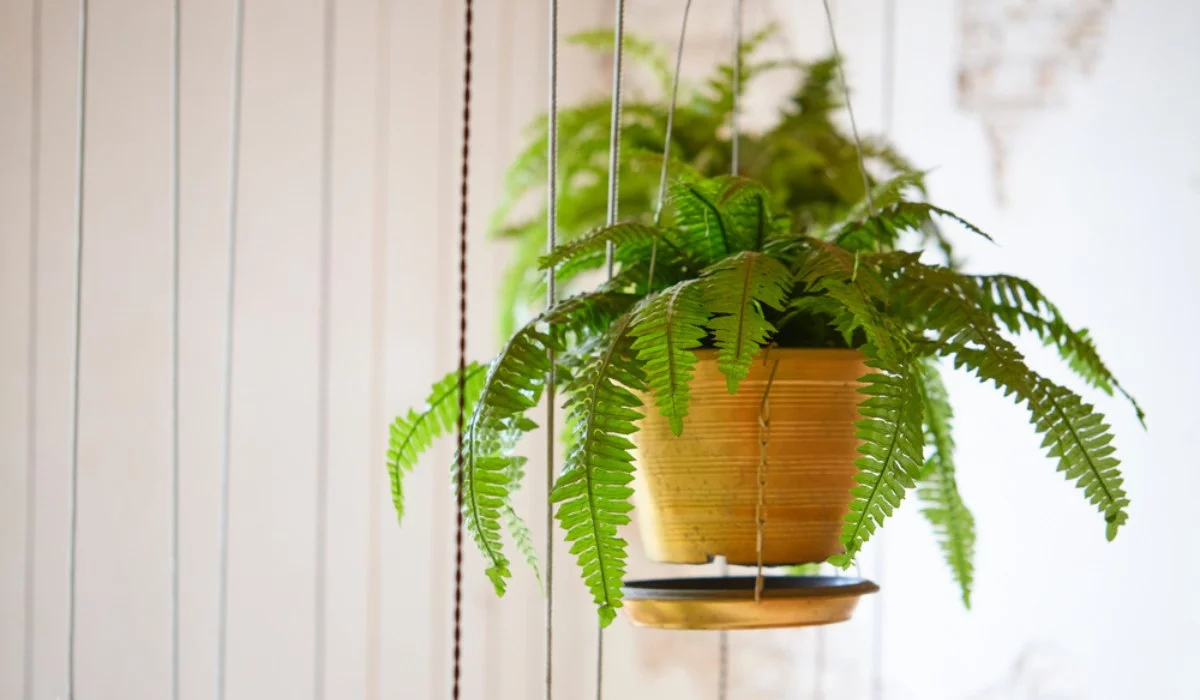
The Boston Fern is a lush, evergreen plant that adds a vibrant touch to your indoor space.
- Light: Prefers bright, indirect sunlight.
- Water: Likes consistently moist soil.
Monstera Deliciosa
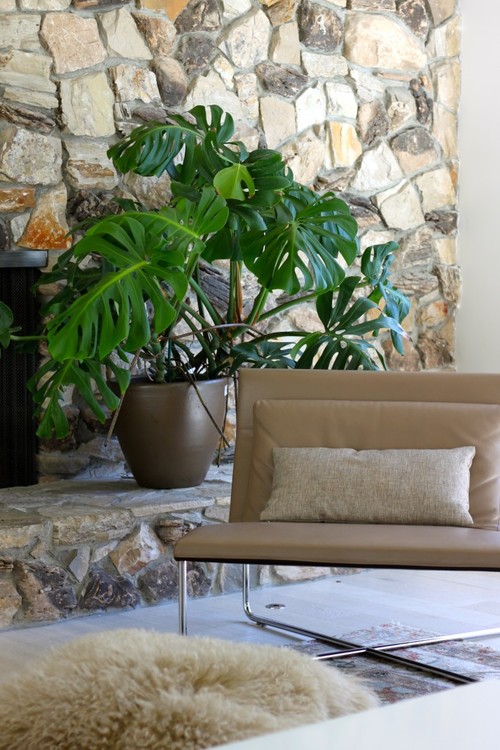
With its unique split leaves, the Monstera is a trendy choice for modern homes.
- Light: Thrives in bright, indirect light.
- Water: Water when the top inch of soil feels dry.
ZZ Plant (Zamioculcas zamiifolia)
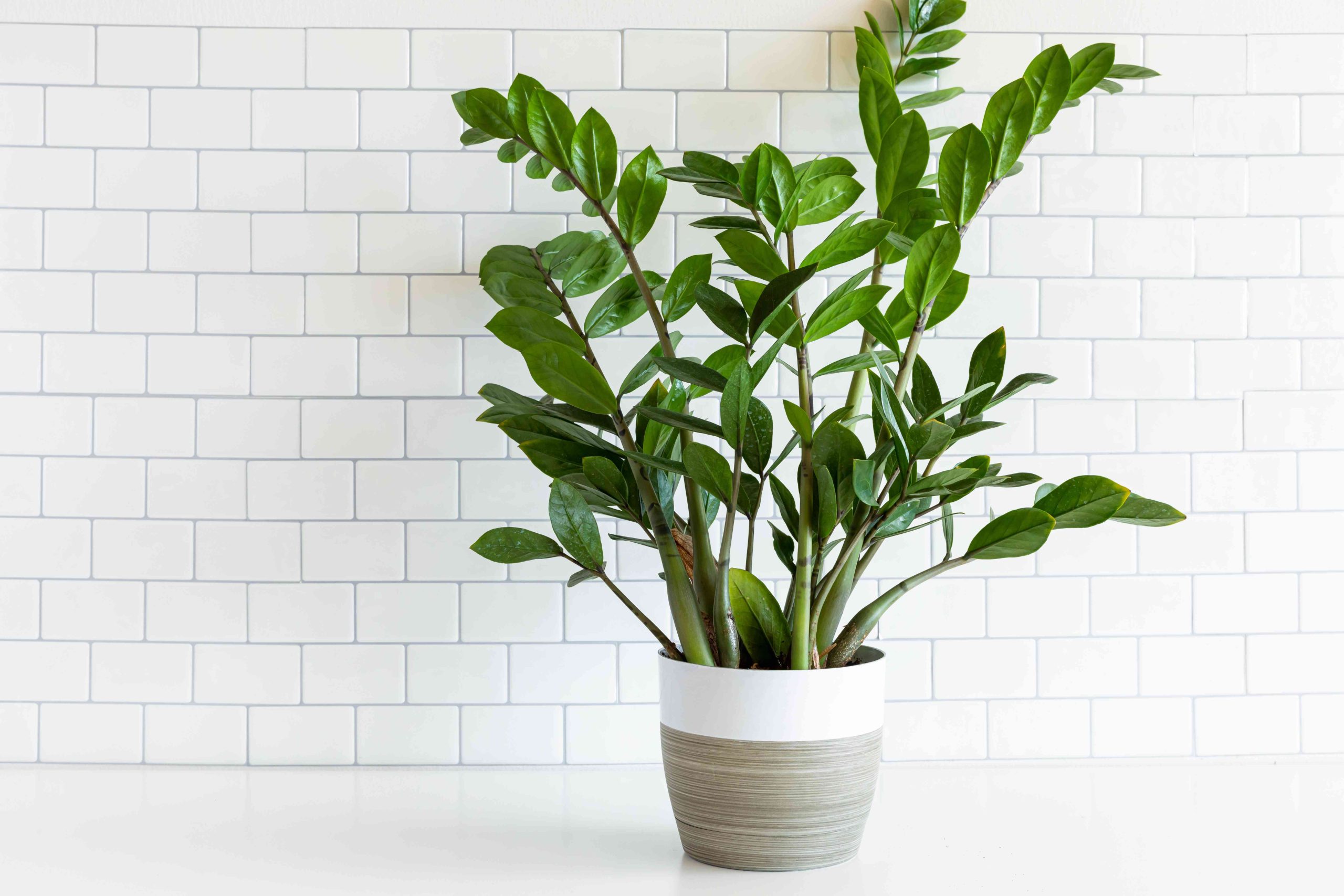
The ZZ plant is the epitome of low maintenance. It’s drought-tolerant and thrives in low-light conditions.
- Light: Tolerates low light.
- Water: Let the soil dry out between watering.
Pothos (Epipremnum aureum)
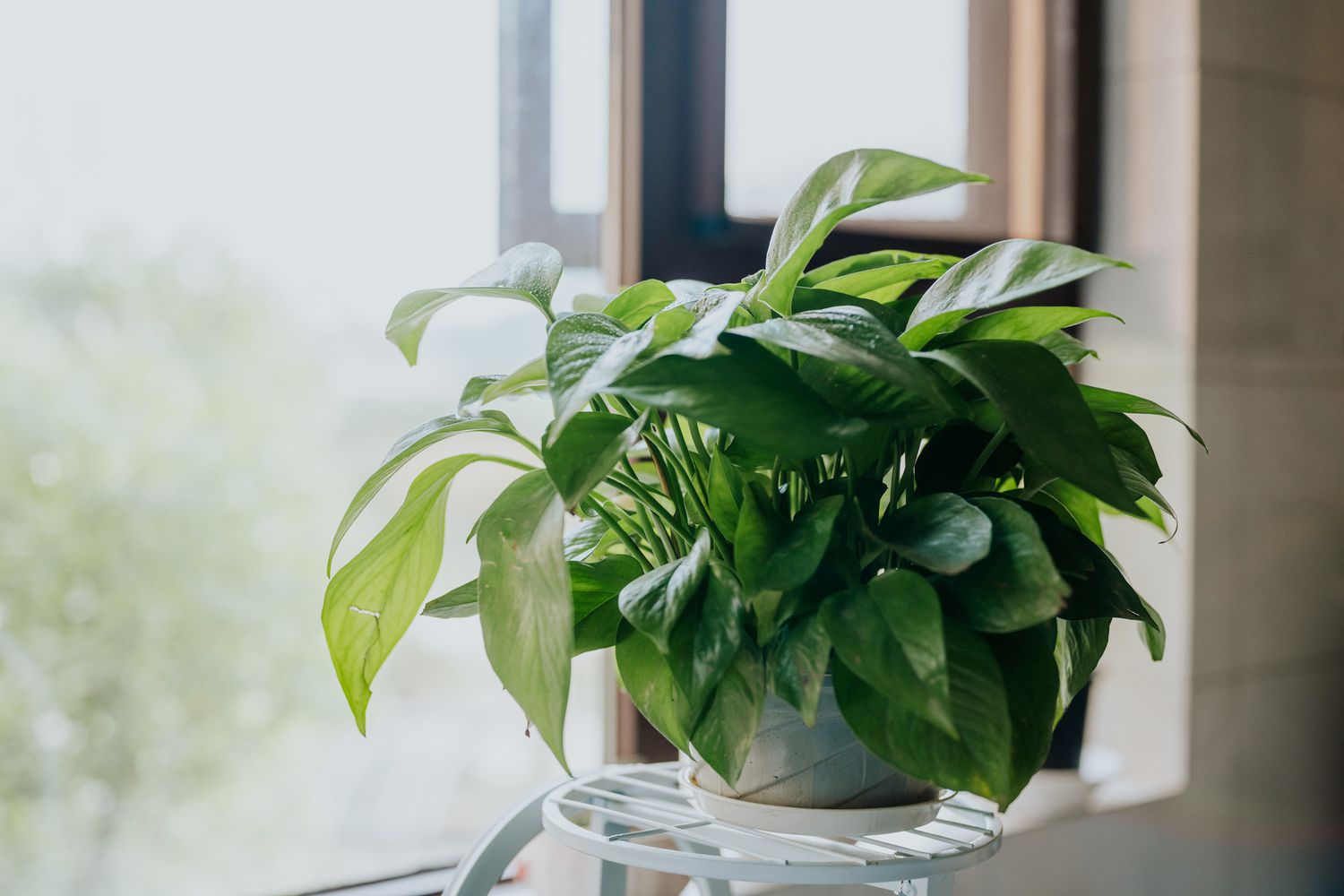
Pothos are famous for their hardiness and variegated leaves, making them a great decorative addition.
- Light: Thrives in low to medium light.
- Water: Let the soil dry out between waterings.
Getting Started with Indoor Plants
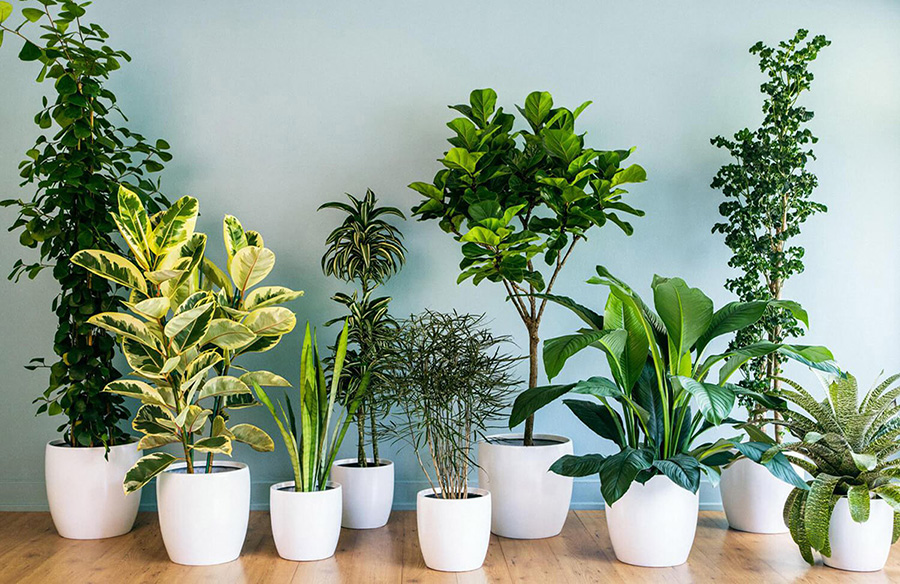
Now that you’re familiar with the top 10 plants every home needs, here are some additional tips to get you started on your plant journey:
Choosing the Right Spot: Each plant has its unique light and space requirements. Make sure to place your plants in a spot that matches their needs.
Watering Wisely: Over-watering is a common mistake. It’s crucial to understand the watering needs of each plant and adjust accordingly.
Fertilizing: Plants need nutrients to thrive. Use a balanced fertilizer during the growing season to keep your plants healthy.
Regular Maintenance: Pruning and cleaning the leaves of your plants not only keeps them looking great but also promotes healthy growth.
Pest Control: Keep an eye out for signs of pests and deal with them promptly to prevent them from spreading to your other plants.
Benefits of Having Indoor Plants

Having plants in your home isn’t just about decoration. Here are some benefits that emphasize why these are things every plant owner needs:
- Air Purification: Many indoor plants, like the Peace Lily and Spider Plant, are known to purify the air by removing toxins.
- Mental Health: Studies show that having plants in your home can reduce stress and boost your mood.
- Improved Focus: Having plants in your workspace can increase productivity and concentration.
Incorporating Plants into Your Home Decor
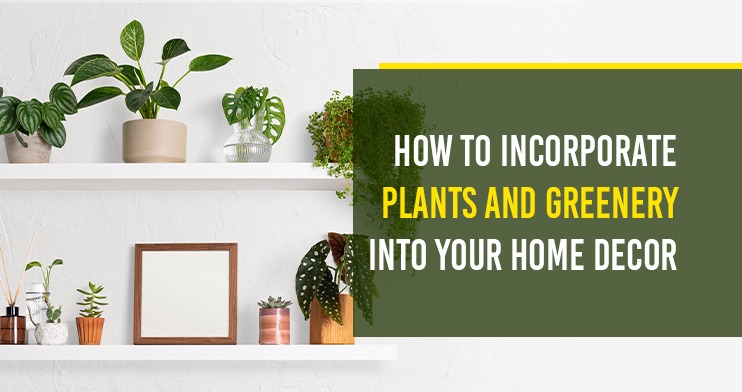
Adding plants to your home is not just about placing them on windowsills. Here are some creative ways to integrate these top 10 plants every home needs into your home decor:
Vertical Gardens: Utilize your wall space by creating a vertical garden. This can be especially effective with trailing plants like Pothos.
Terrariums: Small plants like the Spider Plant can be placed in glass terrariums, making a unique and eye-catching display.
Grouping Plants: Create a small indoor jungle by grouping various plants together. This can create a focal point in your room.
Using Decorative Pots: Choose pots that complement your home’s style. This not only adds to the beauty of your plants but also to your overall decor.
Balcony Gardens: If you have a balcony, use it to house sun-loving plants like the Aloe Vera and the Rubber Plant.
Plant Care for Beginners
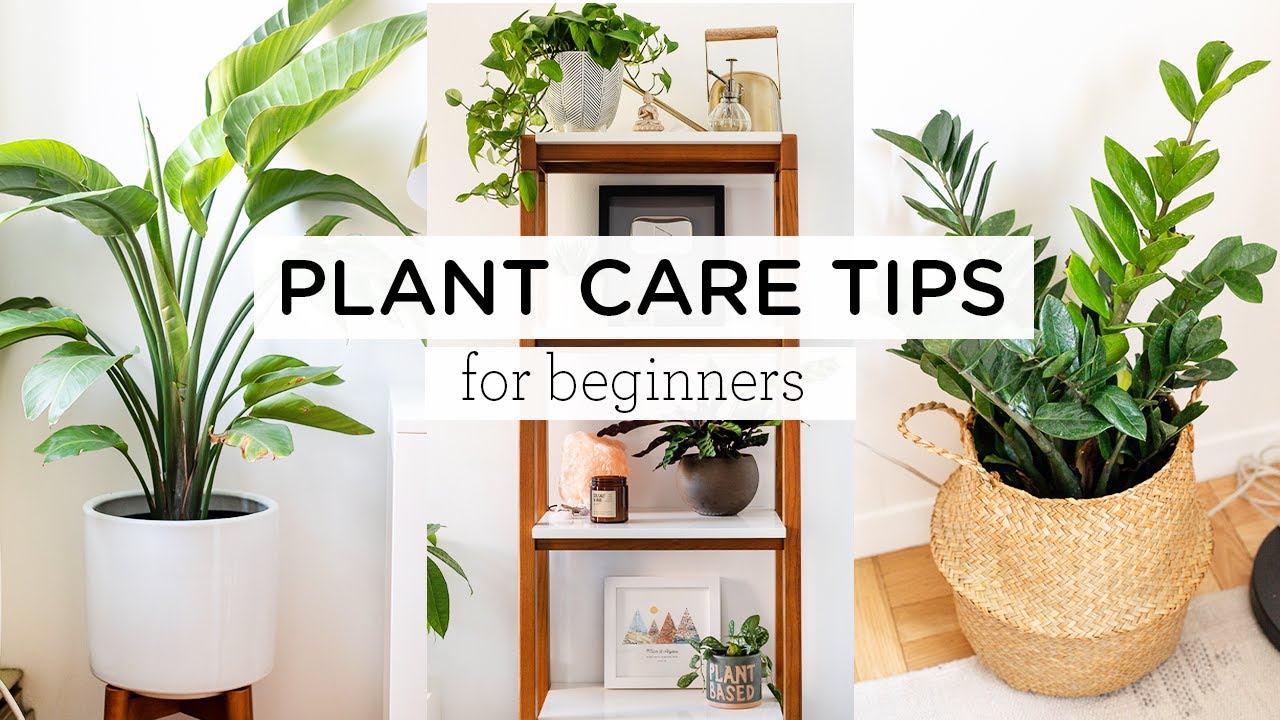
For those new to plant care, here’s a quick starter guide to ensure your top 10 plants every home needs thrive:
- Start Small: Begin with one or two easy-to-care-for plants and gradually expand your collection.
- Understand the Basics: Learn the basics of plant care – light, water, soil, and fertilizer.
- Be Observant: Pay attention to your plant’s leaves and soil to catch any issues early.
- Ask for Help: Don’t hesitate to seek advice from local nurseries or online plant communities.
Joining the Plant Community

The plant owner community is a vibrant and supportive one. Here are some ways to engage:
- Social Media Groups: Join plant care groups on platforms like Facebook and Instagram for tips, advice, and inspiration.
- Local Plant Swaps: Participate in plant swap events in your community. It’s a great way to expand your collection and meet fellow plant enthusiasts.
- Online Forums: Websites like Reddit have active plant care forums where you can ask questions and share your plant journey.
Troubleshooting Common Plant Problems
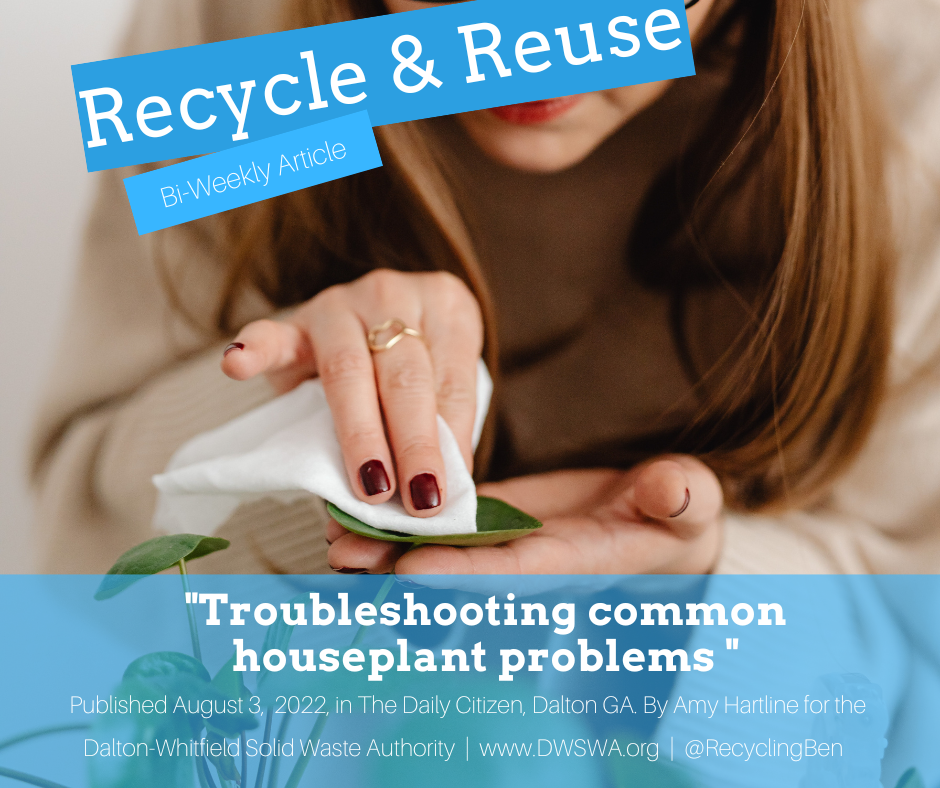
Even the most experienced plant owners face challenges. Here are some tips for troubleshooting common issues with the top 10 plants every home needs:
- Yellowing Leaves: This can be a sign of overwatering or poor drainage. Check the soil and adjust your watering schedule.
- Drooping Plants: Often a sign of underwatering or too much sun. Assess the moisture of the soil and the plant’s location.
- Pest Infestations: Keep an eye out for signs like spots on leaves or webbing. Treat promptly with natural pest control methods or insecticidal soap.
Eco-Friendly Plant Care

Sustainable practices are important in plant care. Here are some eco-friendly tips:
- Reuse and Recycle: Use recycled containers as plant pots and compost your kitchen waste for fertilizer.
- Water Conservation: Collect rainwater for watering your plants. It’s better for the plants and the environment.
- Choose Local Species: Opt for local plant species as they are more likely to thrive and require less maintenance.
The Joy of Propagating
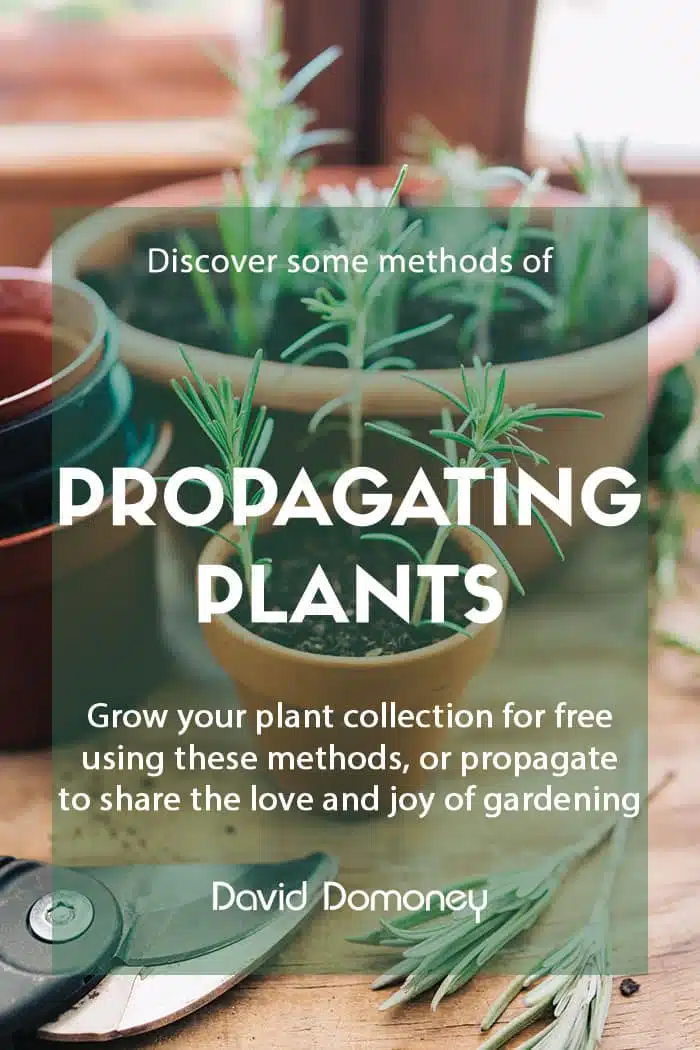
Propagation is a cost-effective and rewarding way to expand your plant collection. Many plants, like the Spider Plant and Pothos, are easy to propagate.
- Learn the Basics: Understand the different methods of propagation such as cuttings, division, or leaf propagation.
- Patience is Key: Propagation takes time. Be patient and enjoy watching the new growth.
- Share the Love: Propagated plants make great gifts for friends and family.
Conclusion
Embracing the world of indoor plants can be a rewarding experience. Whether it’s for aesthetics, health benefits, or the joy of nurturing a living thing, the top 10 plants every home needs are a great starting point. Remember, the key to successful plant care is understanding and patience. This continuation adds depth to the blog post by addressing common plant care challenges, promoting eco-friendly practices, and introducing the concept of plant propagation. It’s designed to cater not just to beginners, but also to readers looking to deepen their plant care knowledge.
